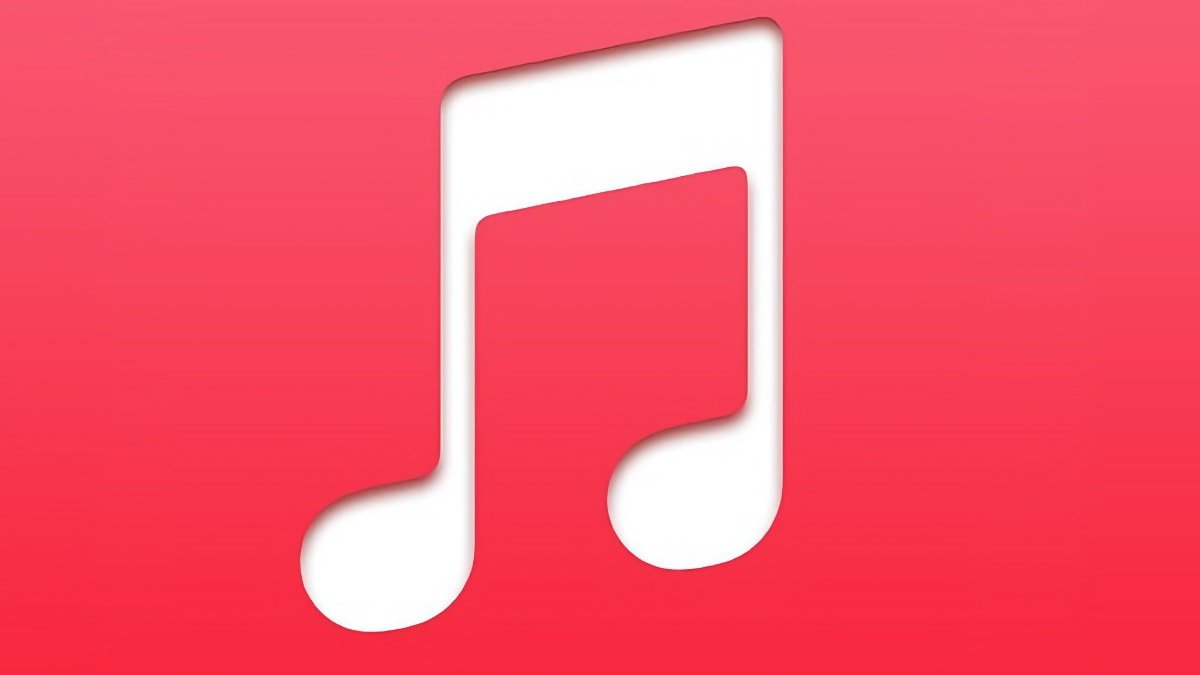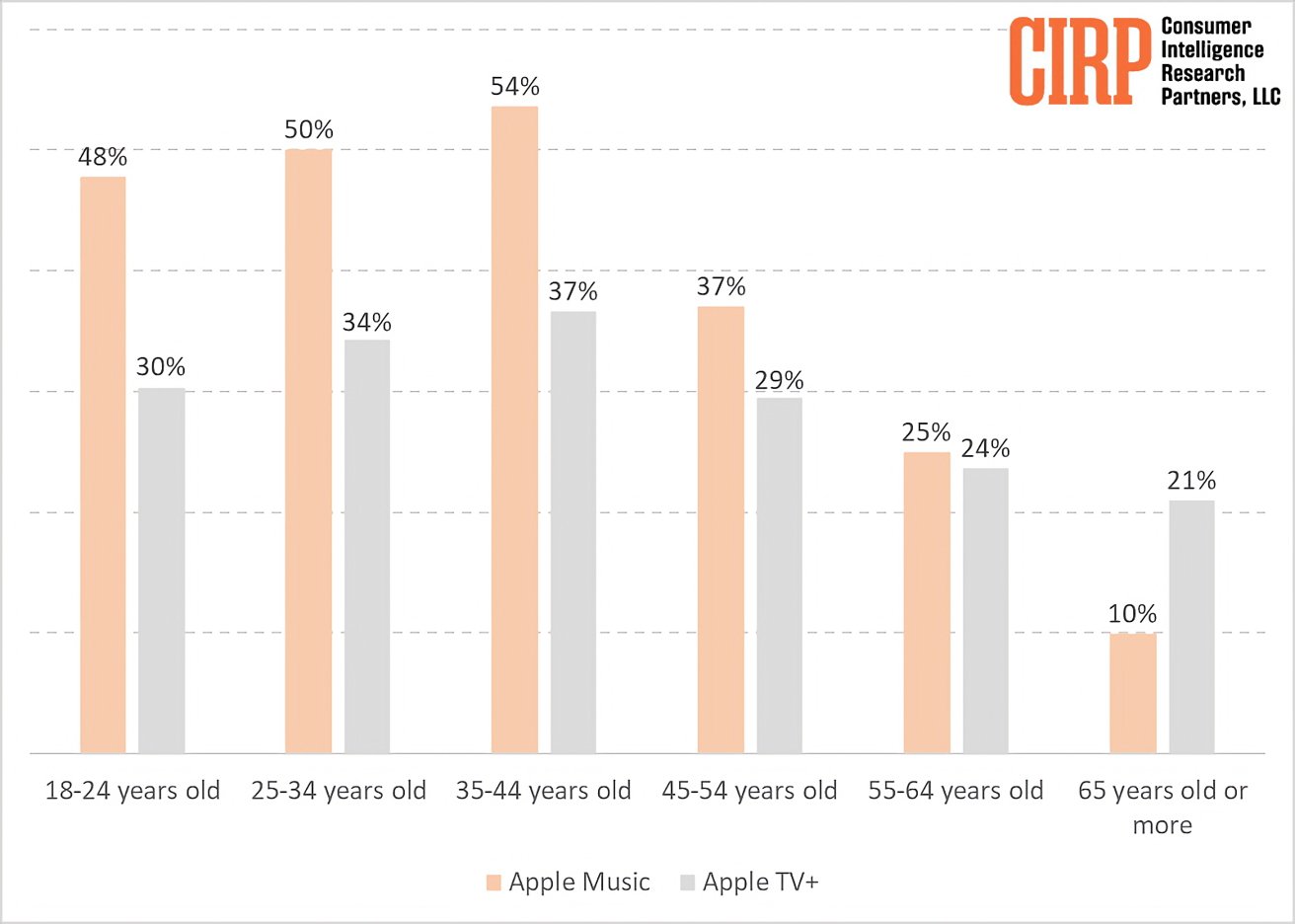Apple Music is popular with a lot of users

While Apple Music may be the most widely used Apple service, and is popular with the young, it has to compete for their attention. Here's how Apple Music use breaks down by age.
The latest report from Consumer Intelligence Research Partners (CIRP) examines Apple Music and Apple TV+, which are part of the Services segment. These services are the most widely used among Apple's higher-priced offerings.
It explores customer usage patterns within this part of the ecosystem, considering variations based on customer age. For example, among Apple owners of all age groups, more than 40% use Apple Music, while just under one-third engage with Apple TV+.

As expected, the usage of Apple Music is more prevalent among younger customers, whereas Apple TV+ remains relatively consistent across different age groups. However, despite its high penetration, Apple Music still has competition.
The highest adoption of Apple Music is observed among users aged 35-44. These relatively tech-savvy consumers typically find Apple Music to be a convenient solution.
They were part of the iTunes generation, where owning songs stored on iPads or iPhones was a common practice for accessing digital music. On the other hand, the youngest iPhone users, who are likely more avid music streamers, also exhibit strong usage of Apple Music.
However, they have also embraced alternative platforms such as Spotify and TikTok alongside Apple Music.
In contrast to streaming music services, streaming video platforms tend to complement each other, and customers often subscribe to multiple services. Apple TV+ demonstrates a relatively even distribution across different age groups, resulting in more consistent penetration patterns.
While Apple TV+ usage reaches its peak among users aged 35-44 years, at 43%, it varies from 21% to 43% across different age groups. In comparison, Apple Music exhibits a wider range of usage, ranging from 10% to 54% across age groups.
No matter the age group, these services play a significant role within the Apple ecosystem, contributing economically and fostering customer loyalty. While the switching costs are lower than hardware devices or mobile operating systems, they create strong and lasting customer connections.